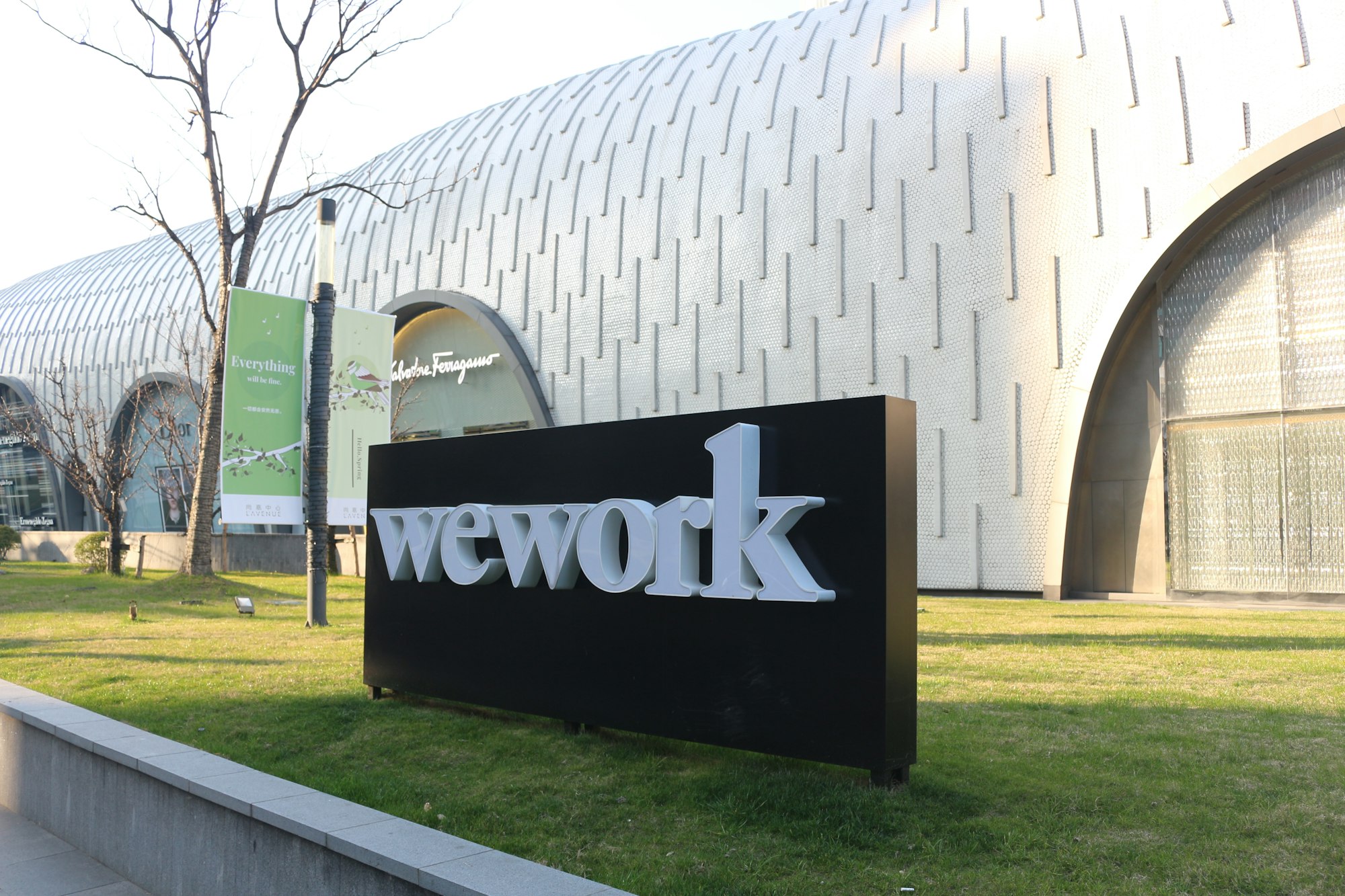As WeWork joins the stock market, we ask, is its model coming into its own in the hybrid era?
WeWork once valued at $47 billion, had onlookers scratching their heads. Some had serious doubts concerning the management style of co-founder Adam Neumann, others just noted the rows of empty desks and wondered if the WeWork business model was, well…was working. Then there was this thing called money — WeWork was losing money faster than free beer!
A few commented on the odd description of WeWork as a tech firm — as it's obviously more bricks and mortar than silicon — so why the extraordinary valuation for a company that was losing billions of dollars every year? For SoftBank, it has been a sorry tale. It is thought that the Japanese tech investment fund has sunk around $18.5 billion into WeWork. SoftBank’s founder and CEO Masayoshi Son has now admitted the investment into WeWork was “foolish".
Will SoftBank ever get its money back? Most analysts say it is unlikely.
Some even feared that the woes at WeWork would spill over into a wider backlash against tech valuations. In the year 2000, Boo.com went bust. The company had been hailed as one of Europe’s ‘coolest businesses’ but burnt through its cash pile faster than you could say boo to a ghost. When it collapsed, tech sentiment amongst investors changed, and in Europe especially, the word dotcom took on a different meaning; it became synonymous with fools gold, and techs crashed. Even in the US, where sentiment seems to be naturally more positive, it took around one and a half decades for the technology-laden NASDAQ to pass its year-2000 level.
When the WeWork IPO was pulled in 2019, when reports circulated that SoftBank was scared to put a revised valuation on its holding in the company because of what that would mean for the value of its own business, people even started comparing WeWork with Boo.com.
Yet, the post-Covid world we seem to be approaching — not that Covid is defeated yet — looks different. Who knows, maybe if there had been no pandemic, tech stocks might have suffered a dotcom style crash; but Covid surely accelerated the digital transformation of the global economy, perhaps allowing techs to avoid the fate of dotcoms 20 years earlier. It has been a different type of disruption this time, the tech is defining our future and has advanced x100 since the days of Boo.com at the turn of the century.
As for WeWork — reports suggest it should be profitable next year. It joined the stock market via a SPAC (special purpose acquisition company) and on IPO, was valued at around $9.5 billion.
Some say it is too expensive even at the massively reduced valuation from the halcyon days of the SoftBank investment. After all, IWG — which owns the serviced offices company Regus — apparently runs more offices, has more desks, and has less empty space but is valued at just £3billion.
There are two big differences between IWG and WeWork. First difference: IWG has been around longer; it provided serviced offices before co-working was a thing. That is an important difference; co-working and serviced offices are not the same thing, and maybe IWG or Regus suffered because it didn’t have the ethos of co-working sowed into its DNA. It has pivoted now; of course, Regus is a co-working company; even so, the suspicion remains; it doesn’t quite feel 'cool' like WeWork. The other big problem faced by IWG is that it is British, subject to the same cautious mindset, glass is half empty, pragmatic investing psychology. The British approach is more cautious but far less likely to create super-star companies.

Is WeWork a tech?
While many argue WeWork isn’t a tech firm, and it is crazy to value it like one, in many ways, it is indeed a tech 'type' firm. Without laptops and internet connectivity, full co-working was not practical. Sure, shared offices have existed for decades, but the shared offices of the 1980s and 1990s were not co-working. The older style shared offices still had filing cabinets and desks with draws, photocopiers and fax machines, and a reception with telephone answering services. Co-working is made possible by digital technology advancement over the past 20 years.

Shared offices in the hybrid working age
Instead of calling WeWork a co-working company, call it a shared offices company, the description is just as apt.
Covid has taught us that remote working is viable and offers many advantages, but still, there is this sense that people need more face-to-face interaction. That is why the hybrid model is emerging. It is difficult to imagine an office renting model more suited to hybrid working than the IWG or WeWork model
Who knows whether the valuation of WeWork is fair. Only time will tell; maybe the IWG valuation is more realistic, maybe IWG is cheap.
One nagging doubt remains: is the future of hybrid working really rows of desks some days, working from home other days? If the rationale behind hybrid working is that we do need to be in physical proximity with each other from time to time, then aren’t there better ways of achieving this than an old fashioned office type layout?






Related News
Tesla — has the bubble burst, or is it still a disruptor?
Jan 10, 2023
Unstructured data, super.AI and putting humans in the loop
Apr 21, 2022
ESG isn’t about ethics; it’s about profit — is that right?
Mar 30, 2022